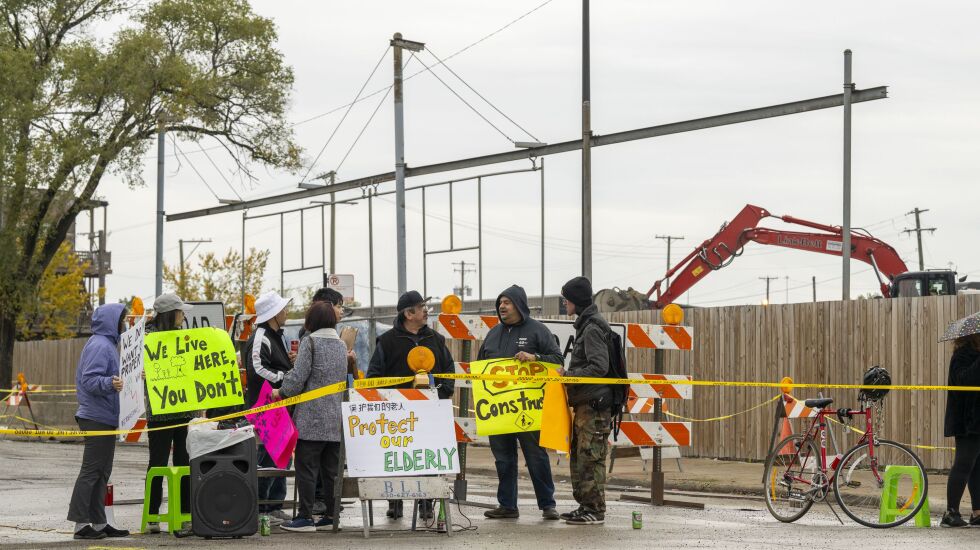
Two Chicago City Council members whose wards are the planned sites of the first two large migrant camps say they don’t want other key projects to be neglected as a result.
Ald. Ronnie Mosley (21st), learned of the site in his ward in September, and Ald. Julia Ramirez (12th), found out about the site in her ward in mid-October. Both want guarantees the tent cities won’t be built at the expense of long-term development for their wards.
Mosley fears the tent shelter will mean putting off a long-awaited development slated to break ground next year. That project, Morgan Park Commons, is expected to bring hundreds of housing units, a park and nearly 20,000 square feet of retail space.
“We cannot sacrifice our project for this,” said the freshman alderman, noting a decline in population has retailers moving out, including a Walmart that closed in April. “We’re scheduled to break ground as soon as the ground thaws after the winter. It has to go forward.”
A City Council committee voted Monday to accept a donation of land at 115th and Halsted streets in Mosley’s ward. Michelle Woods of the city’s Department of Assets, Information and Services spoke at that meeting, saying the long-term plan is for Morgan Park Commons to be built later at that site, but Mosley said starting the project is more urgent.

Like Mosley, Ramirez sympathized with the city’s urgent need to house thousands of incoming migrants but questioned bringing them to the vacant parcel at 38th Street and California Avenue in her Southwest Side ward.
“We can’t rely on neighborhoods that are already feeling so much distress to take on the brunt of it,” said the Brighton Park native.
If the tent camp is built, Ramirez hopes to parlay that into more support for the community, citing a North Side example.
A former Marine Corps facility in North Park purchased as a temporary shelter presents a “tremendous opportunity,” said local Ald. Samantha Nugent (39th). The site could later house an early childhood center, or the city could work with the Chicago Park District “to make more riverfront parkland accessible to the community.”
Ramirez said her ward, which has “the least amount of green space, no community center and no senior services,” could use something similar.
“We’re willing to help here,” Ramirez said, “but you have to help us.”
Michael Loria is a staff reporter for the Chicago Sun-Times via Report for America, a not-for-profit journalism program that aims to bolster the paper’s coverage of communities on the South Side and West Side.








